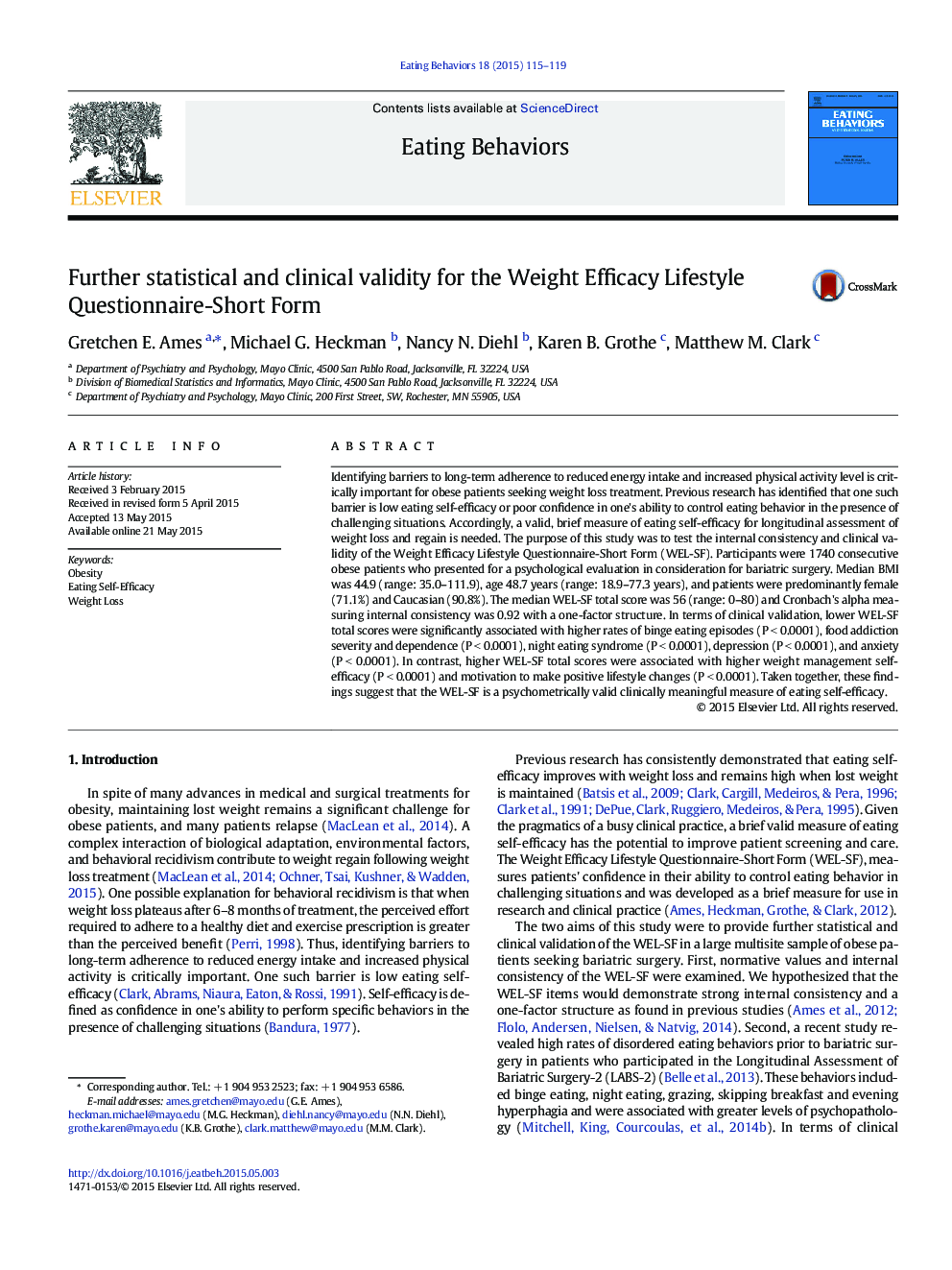| Article ID | Journal | Published Year | Pages | File Type |
|---|---|---|---|---|
| 906399 | Eating Behaviors | 2015 | 5 Pages |
•Maintaining lost weight remains a significant challenge for obese patients.•Low eating self-efficacy is a barrier to long-term adherence to reduced energy intake.•Longitudinal investigations of eating self-efficacy after successful weight loss are needed.•The WEL-SF is a psychometrically valid and clinically meaningful measure of eating self-efficacy.
Identifying barriers to long-term adherence to reduced energy intake and increased physical activity level is critically important for obese patients seeking weight loss treatment. Previous research has identified that one such barrier is low eating self-efficacy or poor confidence in one's ability to control eating behavior in the presence of challenging situations. Accordingly, a valid, brief measure of eating self-efficacy for longitudinal assessment of weight loss and regain is needed. The purpose of this study was to test the internal consistency and clinical validity of the Weight Efficacy Lifestyle Questionnaire-Short Form (WEL-SF). Participants were 1740 consecutive obese patients who presented for a psychological evaluation in consideration for bariatric surgery. Median BMI was 44.9 (range: 35.0–111.9), age 48.7 years (range: 18.9–77.3 years), and patients were predominantly female (71.1%) and Caucasian (90.8%). The median WEL-SF total score was 56 (range: 0–80) and Cronbach's alpha measuring internal consistency was 0.92 with a one-factor structure. In terms of clinical validation, lower WEL-SF total scores were significantly associated with higher rates of binge eating episodes (P < 0.0001), food addiction severity and dependence (P < 0.0001), night eating syndrome (P < 0.0001), depression (P < 0.0001), and anxiety (P < 0.0001). In contrast, higher WEL-SF total scores were associated with higher weight management self-efficacy (P < 0.0001) and motivation to make positive lifestyle changes (P < 0.0001). Taken together, these findings suggest that the WEL-SF is a psychometrically valid clinically meaningful measure of eating self-efficacy.
